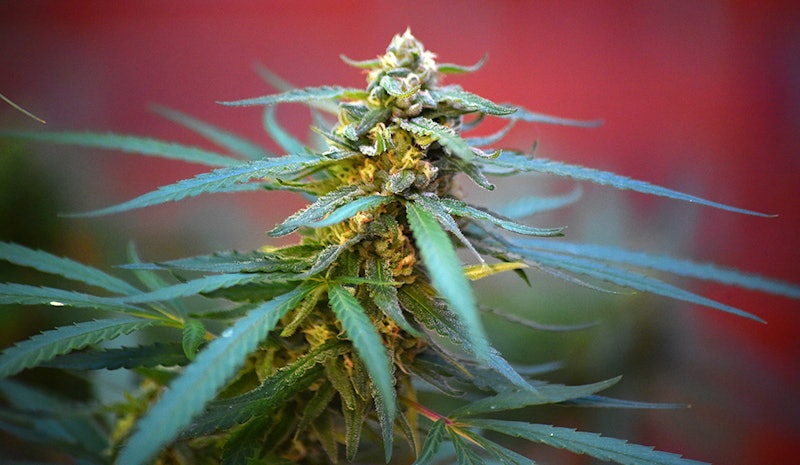That’s a quick summary of the Drug Enforcement Administration’s (DEA) 12-page response to cannabis rescheduling advocates, who filed a Jan. 6 motion for DEA Chief Administrative Law Judge (ALJ) John J. Mulrooney to reconsider the DEA’s role as the proponent of a proposed rule to reclassify cannabis in the upcoming hearing process. The hearing is scheduled to resume with expert testimonies on Jan. 21.
More specifically, the DEA argued in its Jan. 13 response that Mulrooney not only lacks the authority to remove the DEA as the proponent of the rule but that the rescheduling advocates offered no new evidence in their motion to reconsider.
“In short, movants must demonstrate that the evidence they now put forward was not available to them when they filed the first ex parte motion despite their diligent efforts to discover it,” DEA Diversion Section Attorney S. Taylor Johnson wrote in Monday’s response. “Here they fail.”
A team of lawyers filed the motion to reconsider last week on behalf of three designated participants (DPs) that the DEA named for the ALJ hearing: Cannabis company Village Farms International, veterans group Hemp for Victory, and the Office of the Cannabis Ombudsman (OCO), collectively referred to as “the movants.”
That trio backs the Department of Justice’s proposed rule to reclassify cannabis from a Schedule I to Schedule III drug under the Controlled Substances Act, a recommendation that the U.S. Department of Health and Human Services made in August 2023 after conducting a scientific and medical evaluation in cooperation with the Food and Drug Administration.
In the movants’ original motion from Nov. 18, Shane Pennington, a partner in the litigation department at Porter Wright Morris & Arthur LLP, wrote that the DEA stacked the DP deck with people and organizations that oppose the DOJ’s proposed rule in an attempt to influence the hearing’s outcome.
Moreover, Pennington argued that the DEA should be removed as the proponent of the DOJ’s proposal, claiming it’s hostile toward cannabis rescheduling and that it participated in ex parte communications with prohibitionist group Smart Approaches to Marijuana (SAM).
After the DEA denied those collusion allegations, and SAM’s legal counsel responded by saying the motion offered no evidence of any improper communications, Mulrooney issued an order denying the motion, explaining that he lacks the authority to grant the removal relief sought.
However, in the movants’ request for reconsideration filed on Jan. 6, the rescheduling advocates’ legal teams argued that new evidence showed that DEA Deputy Assistant Administrator Matthew Strait was working behind the scenes with an anti-rescheduling DP, the Tennessee Bureau of Investigation, to ensure that it would qualify as an “interested person” to participate in the hearings.
In addition, last week’s motion to reconsider claims that there’s new evidence showing that the DEA has a conflict of interest with another anti-rescheduling DP, the Community Anti-Drug Coalitions of America (CADCA), through a partnership on fentanyl- and cannabis-related matters.
H/T: www.cannabisbusinesstimes.com



